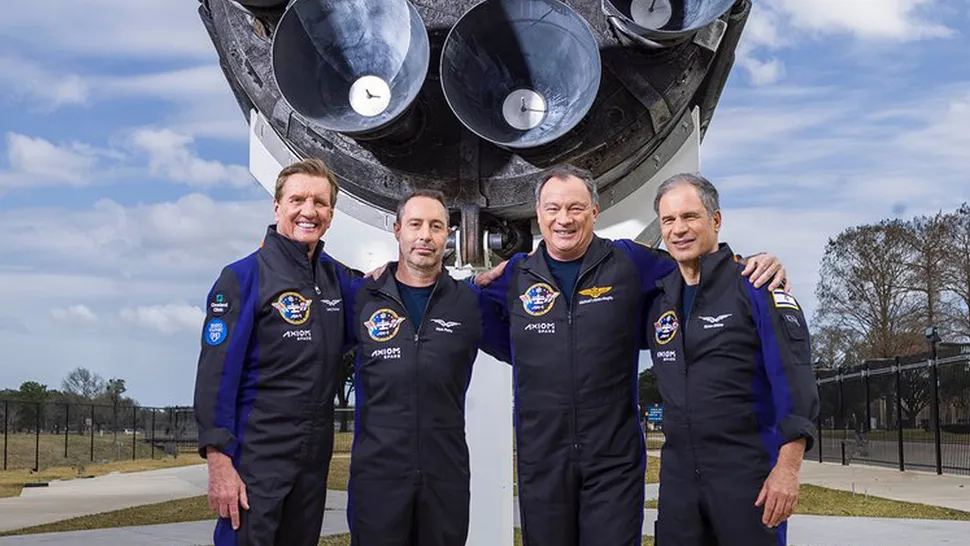A crew of three paying passengers
and one former NASA astronaut will launch to the International Space
Station on Wednesday (April 6) at 12:05 p.m. EDT (1605 GMT). The flight
marks Texas-based aerospace company Axiom Space's Ax-1 mission,
set to launch the crew aboard a SpaceX Dragon atop a Falcon 9 rocket. The
10-day mission will see the crew spend eight days aboard the orbiting lab,
living and working on the station.
"This is opening a new era in human spaceflight," mission commander and retired NASA astronaut Michael López-Alegría said during a news conference today (April 1). "We are taking the first step in a next generation platform initiative that's going to bring working, living and research in space to a much broader and more international audience."
"It's been a real privilege
to work and train alongside these three remarkable gentlemen,"
López-Alegría said. "We have spent countless hours in simulations, in
technical training and hands-on training and they have brought unbelievable commitment,
discipline and an eagerness to learn to the endeavor.
"I can say with zero
hesitation that we are ready to fly," he said.
"The crew is very well
trained, they've spent many hundreds of hours prepping for this flight,"
former NASA astronaut Peggy Whitson, who is now Axiom Space's director of human
spaceflight, said during the same news conference.
"It's great to be
here," Michael Suffredini, president and CEO of Axiom Space, said during
the same news conference, "five days away from what is a truly historic
mission to the International Space Station."
"This really does represent
the first step, where a bunch of individuals who want to do something
meaningful in low Earth orbit that aren't members of a government are able to
take this opportunity," Suffredini added.
The Ax-1 crew includes mission
commander and retired NASA astronaut Michael López-Alegría, pilot Larry Connor
and mission specialists Eytan Stibbe and Mark Pathy.
"It has already been life
changing for me, and we haven't even launched yet," Pathy said during the
news conference. "So [I'm] really excited about what's still to
come."
López-Alegría works as Axiom's
vice president of business development; the three remaining passengers have
paid a combined $55 million for their seats aboard the flight and are bringing
a number of experiments to the station to conduct while in space.
Those experiments include an
Israeli start-up's brain "headset" that Stibbe will carry
with him as part of a series of experiments from the Ramon Foundation. Stibbe
co-created the foundation in honor of his friend, Israeli astronaut Ilan Ramon,
who died aboard the space shuttle Columbia in 2003. Following Ramon,
Stibbe will be only the second Israeli astronaut to reach space.
"I think I speak for all of
us that we understand this first civilian mission is a big honor and a big
opportunity," Connor said. "But with that comes a big responsibility
— that is, to execute the mission correctly and successfully."
Stibbe added that "to be a
part of this crew is a proof from me that there is no dream beyond reach."
Plenty of other experimental
science and technology will be flying along with the "headset."
"It's a very complex flight,
which is near and dear to my little geeky heart," Whitson said. "I
love the fact that we're getting so much scientific research done on this
mission."

Comments
Post a Comment